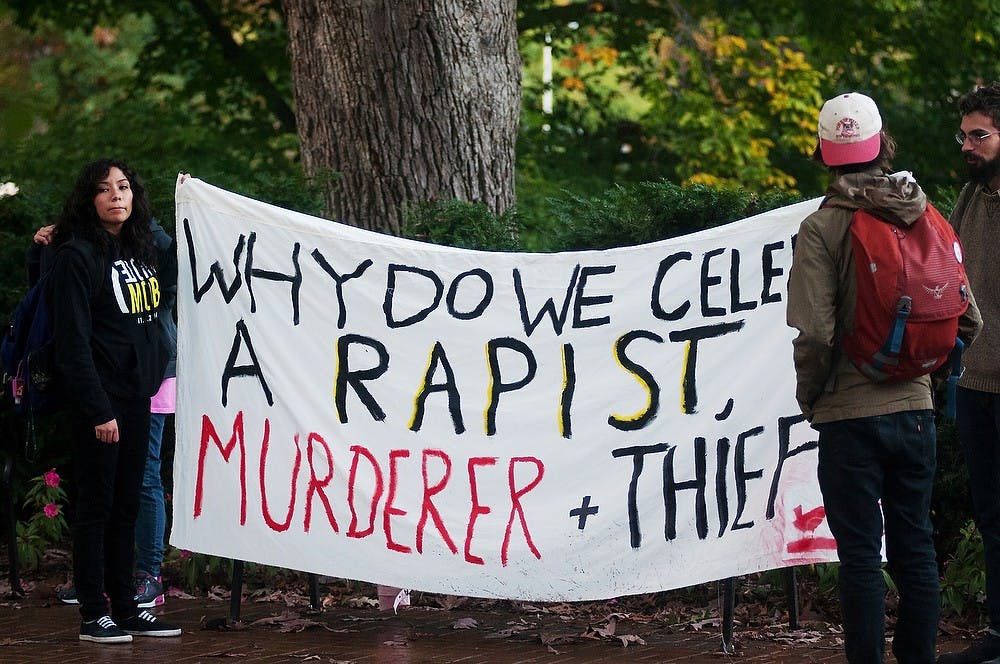"When I say 'Columbus', you say 'terrorist,'" was the cry rang out from a group of protesters marching from Beaumont Tower to the rock on Farm Lane Monday evening, protesting the federal holiday Columbus Day, and the veneration of a historic figure they view as whitewashed.
The annual event is organized by MSU's North American Indigenous Students Organization. A major goal of the event was to advocate for the establishment of Indigenous People's Day as a federal holiday to replace Columbus day.
Stephanie Chau, who is the assistant director of undergraduate diversity for the College of Agriculture and Natural Resources and was present at the protest, said the truth about Christopher Columbus is not taught accurately in classrooms.
"When I was taught, Columbus was a great hero, an explorer, the founder of America," Chau said. "While he was an explorer and did do those things we don't teach the other side of all the atrocities he committed."
There are a number of facts about the man venerated on Columbus Day that NAISO members said are overlooked, primarily the killing or enslavement of tens of thousands of indigenous Americans under his direction once landing in the Americas.
Present at the march were both a number of students and community members of Indigenous descent, as well as many non-indigenous students. According to the organizers of the march, Columbus' unsavory legacy is not restricted to one cultural group.
"When we talk about equality, when we talk about moving forward, when we talk about growing as a nation — these are some of the things that we've got to heal from, just as a people overall," NAISO Co-Chair Rondo Begay said. "It's not an individual race kind of thing. It's our nation."
Not only was the march targeted at a historic figure, but also geared towards modern-day transgressions on the lands of indigenous people.
"These are treaties that have been signed and broken hundreds of times," jazz studies and history major Duncan Tarr said. "The American people and the American government are still disrespecting indigenous treaties."
A major point made by the organizers of the march was the equality of all people.
"Creating a society where nobody has to be afraid about hate crimes, nobody has to be afraid about burglaries or robberies or anything like that," NAISO Co-Chair Karley Rivard said. "It all has to do with everybody treating each other as equals, not hating on people, not bashing their culture."
Responding to a hypothetical criticism of native people being stuck in the past, Chau responded that the past is still relevant in today's world.
"You can't keep the past in the past," Chau said. "The past is your history."
Support student media!
Please consider donating to The State News and help fund the future of journalism.
Discussion
Share and discuss “Community protests Columbus Day as stain on national image” on social media.


